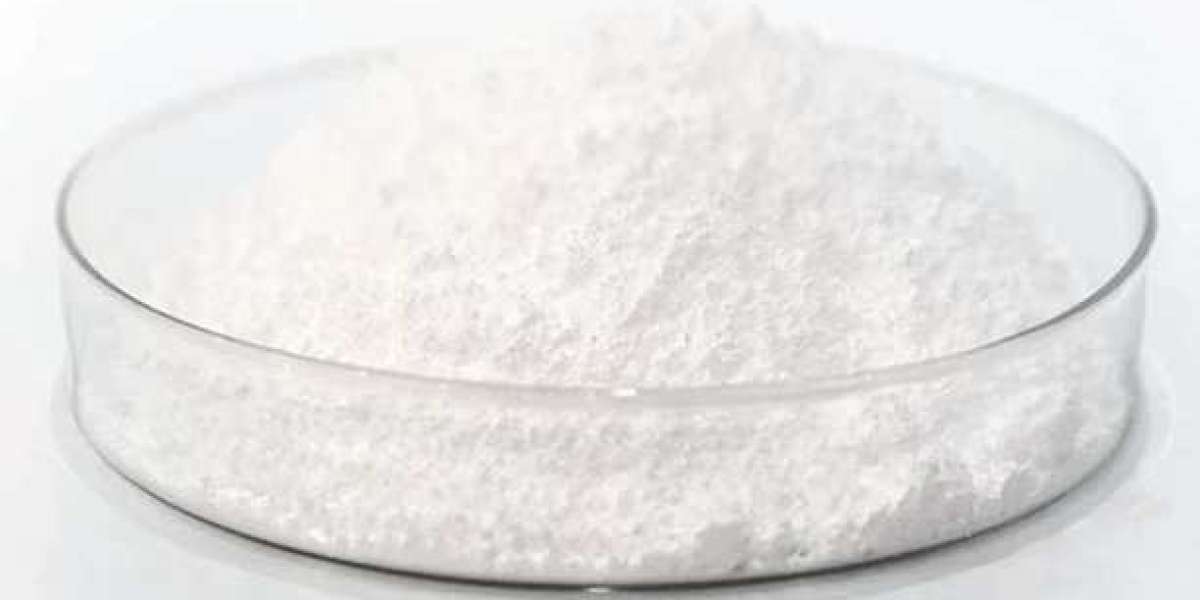Discover the potential of nicotinamide mononucleotide (NMN) in enhancing cellular health and longevity. This compound, a precursor to NAD+, plays a crucial role in various biological processes, offering promising benefits for overall well-being. From supporting energy metabolism to promoting DNA repair, NMN has captured the attention of researchers and health enthusiasts alike. Dive into this blog post to explore the science behind NMN, its potential health effects, and how it may contribute to a healthier lifestyle. Unveil the secrets of this fascinating molecule and its implications for aging and wellness.
Understanding NMN and Metabolic Health
Signaling Molecule
Nicotinamide mononucleotide (NMN) plays a crucial role as a signaling molecule in the body, aiding in the maintenance of NAD+ levels. NAD+ is essential for various cellular processes, including energy production and DNA repair. By boosting NAD+ levels, NMN supports overall cellular health and function.
Insulin Sensitivity
NMN supplementation has shown promising results in enhancing insulin sensitivity. Improved insulin sensitivity can lead to better blood sugar control, reducing the risk of type 2 diabetes. By enhancing glucose uptake in cells, NMN helps regulate blood sugar levels effectively.
Mitochondrial Function
One significant benefit of NMN supplementation is its ability to reverse mitochondrial dysfunction. Mitochondria are known as the powerhouse of the cell, responsible for producing energy. NMN can help improve mitochondrial function, leading to increased energy production and overall cellular vitality.
Lifespan Extension
Research suggests that NMN may play a vital role in extending lifespan by improving biological robustness. By activating sirtuins, proteins involved in regulating cellular health and longevity, NMN can potentially slow down the aging process and promote a healthier lifespan. Studies have shown that NMN supplementation can enhance metabolic health, contributing to a longer and healthier life.
Exploring NMN's Role in Metabolic Enhancement
NAD+ Biosynthesis Benefits
Nicotinamide mononucleotide (NMN) supplementation plays a crucial role in enhancing NAD+ biosynthesis, a key factor in cellular energy production. By boosting NAD+ levels, NMN helps combat age-related decline in metabolic function and promotes overall health.
Studies have shown that NMN can effectively reduce adipose tissue inflammation associated with aging. This anti-inflammatory effect not only aids in weight management but also contributes to a healthier metabolic profile over time.
Insulin Regulation and Mitochondrial Function
NMN's impact on insulin secretion and action underscores its potential in managing metabolic disorders like diabetes. By improving insulin sensitivity, NMN helps regulate blood sugar levels and supports overall metabolic health.
Furthermore, NMN has been found to enhance mitochondrial function, the powerhouse of cells responsible for energy production. This improvement in mitochondrial activity can lead to increased energy levels and better metabolic efficiency.
Anti-Aging Effects and Therapeutic Potential
In mouse models, NMN supplementation has demonstrated remarkable anti-aging effects by promoting longevity and reducing age-related decline in various physiological functions. These findings suggest that NMN holds promise as an anti-aging intervention with significant implications for human health.
Moreover, research indicates that NMN may have therapeutic benefits for conditions beyond aging, such as Alzheimer's disease. By targeting metabolic pathways implicated in neurodegeneration, NMN shows potential in mitigating cognitive decline associated with Alzheimer's and other neurodegenerative disorders.

NMN and Mitochondrial Function
Influence on Mitochondrial Function
Nicotinamide mononucleotide (NMN) plays a crucial role in enhancing mitochondrial function. When NMN levels increase, it can positively impact the efficiency of mitochondrial energy production. This boost in energy production is essential for overall cellular function and health.
Studies have shown that NMN supplementation can lead to increased mitochondrial biogenesis, which is the process of creating new mitochondria. This increase in mitochondrial biogenesis can result in improved cellular energy production and overall metabolic function. By enhancing mitochondrial function, NMN contributes to better cellular health and longevity.
Effects on Neuronal Function
In addition to its impact on mitochondrial function, NMN also has significant effects on neuronal function in the brain. Research suggests that NMN can help protect neurons from age-related damage and degeneration. By supporting neuronal health, NMN may play a crucial role in maintaining cognitive function and overall brain health as we age.
Furthermore, NMN has been shown to enhance neuroplasticity, which is the brain's ability to adapt and form new connections. This effect can be particularly beneficial for cognitive function, learning, and memory. By promoting neuronal function, NMN may offer potential benefits for neurological health and cognitive performance.
Rapid Absorption and Conversion
One of the key advantages of NMN supplementation is its rapid absorption and conversion to nicotinamide adenine dinucleotide (NAD+) when taken orally. Studies have demonstrated that NMN is efficiently absorbed by the body and quickly converted into NAD+, a vital coenzyme involved in various cellular processes.
When NMN is converted to NAD+ in the body, it can directly support mitochondrial function by participating in energy production processes like glycolysis and oxidative phosphorylation. This rapid conversion ensures that NMN effectively boosts cellular energy levels and supports metabolic functions throughout the body.
How NMN Influences Cellular Senescence
Relationship Aging and NMN Levels
Maintaining optimal nicotinamide mononucleotide (NMN) levels is crucial in combating the effects of aging. As individuals age, the body's natural production of NMN decreases, leading to a decline in NAD+ levels, a vital molecule for cellular energy production.
Higher NMN levels have been associated with improved mitochondrial function, which plays a significant role in cellular senescence. By enhancing mitochondrial function, NMN helps combat age-related decline and supports overall cellular health.
Impact of Aging on NMN Conversion to NAD+
Aging poses challenges to the body's ability to efficiently convert NMN into NAD+. This conversion process is essential for maintaining cellular energy levels and supporting various biological functions. As individuals age, this conversion becomes less efficient, resulting in decreased NAD+ levels.
The decline in NAD+ levels can lead to compromised cellular functions, impacting metabolism, DNA repair mechanisms, and overall cellular health. Supplementing with NMN can help replenish NAD+ levels and support optimal cellular function.
Evidence of NMN's Role in Preventing Age-Linked Gene Expression Changes
Research has shown that NMN supplementation can prevent age-linked changes in gene expression patterns. By maintaining adequate NAD+ levels through NMN supplementation, individuals may experience improved gene regulation, leading to a more youthful gene expression profile.
Studies have demonstrated that NMN can activate sirtuins, a class of proteins involved in regulating cellular health and longevity. Sirtuins play a crucial role in gene expression modulation, DNA repair, and stress response pathways, all of which are essential for combating age-related changes at the cellular level.

NMN's Pathway to Mitochondrial Rejuvenation
Synthesis of NMN
Nicotinamide mononucleotide (NMN) is synthesized from vitamin B3, also known as niacin, through a series of enzymatic reactions in the body. This conversion process involves several steps that ultimately lead to the formation of NMN, a crucial precursor in the production of nicotinamide adenine dinucleotide (NAD+). NAD+ is a coenzyme found in all living cells and plays a vital role in various biological processes, including DNA repair and energy production.
Cellular Uptake via Transporters
One fascinating aspect of NMN is its ability to be transported directly into cells through specific transporters. These transporters, such as Slc12a8, facilitate the efficient uptake of NMN into cells, where it can then participate in the synthesis of NAD+. This direct transportation mechanism ensures rapid availability of NMN within cells, enhancing its effectiveness in supporting cellular functions.
Benefits in Age-Associated Weight Gain and Energy Metabolism
NMN has gained significant attention for its potential role in combating age-related weight gain and improving energy metabolism. Studies have shown that supplementation with NMN can help prevent age-associated weight gain by promoting healthy metabolic function and increasing energy expenditure. By boosting NAD+ levels, NMN supports mitochondrial function, which is essential for energy production and metabolism.
Pros:
Supports healthy metabolic function.
Enhances energy metabolism.
Helps prevent age-related weight gain.
Role in Mitochondrial Rejuvenation
Mitochondria are often referred to as the powerhouse of the cell, responsible for generating energy in the form of adenosine triphosphate (ATP). NMN plays a crucial role in mitochondrial rejuvenation by fueling the production of NAD+, which is essential for mitochondrial function. By maintaining optimal NAD+ levels, NMN supports mitochondrial health, thereby improving overall cellular energy production and metabolic processes.
Supplementing with NMN for Better Health
Eye Function
NMN supplementation has shown promising results in improving eye function. Studies have indicated that NMN can help protect the eyes from age-related damage, enhancing vision clarity and reducing the risk of eye diseases.
Research suggests that NMN supports the production of NAD+, a crucial molecule for maintaining healthy eyes. By boosting NAD+ levels, NMN aids in protecting the retina and promoting overall eye health.
Skeletal Muscle Restoration
NMN's role in skeletal muscle restoration is significant. It has been found to enhance muscle function, increase muscle strength, and promote muscle repair after strenuous exercise or injury.
By elevating NAD+ levels, NMN helps in mitochondrial biogenesis within muscle cells, leading to improved energy production and muscle recovery. This process is vital for maintaining optimal muscle health and performance.
Cognitive Decline
When it comes to combating cognitive decline, NMN supplementation has emerged as a potential ally. Research suggests that NMN can enhance cognitive function, improve memory retention, and reduce the risk of neurodegenerative disorders such as Alzheimer's disease.
By supporting mitochondrial function in brain cells, NMN plays a crucial role in maintaining neuronal health and promoting brain vitality. These effects contribute to better cognitive performance and overall brain health.
Heart Protection
The benefits of NMN supplementation extend to heart protection. Studies have shown that NMN can help in preventing cardiovascular diseases, reducing the risk of heart attacks, and improving overall cardiac function.
By enhancing mitochondrial metabolism in cardiac cells, NMN promotes energy production, strengthens the heart muscles, and supports optimal heart health. These effects are essential for maintaining a healthy cardiovascular system.
Mitochondrial Metabolism and Insulin Sensitivity
Research has highlighted the crucial role of NMN in improving mitochondrial metabolism and insulin sensitivity. By enhancing mitochondrial function, NMN contributes to efficient energy production within cells, supporting overall metabolic processes.
Moreover, studies have demonstrated that NMN supplementation can increase insulin sensitivity, helping regulate blood sugar levels and reduce the risk of insulin resistance. These effects are vital for metabolic health and preventing conditions like type 2 diabetes.

Closing Thoughts
The exploration of nicotinamide mononucleotide and its profound impact on metabolic health, mitochondrial function, and cellular rejuvenation unveils promising avenues for enhancing overall well-being. Understanding NMN's role in combating cellular senescence and promoting metabolic efficiency sheds light on its potential as a supplement for improving health outcomes. The pathway to mitochondrial rejuvenation through NMN supplementation presents a compelling narrative for those seeking to optimize their physiological functions.
For individuals looking to delve deeper into the realm of metabolic enhancement and cellular rejuvenation, considering NMN supplementation under appropriate guidance could offer a valuable step towards achieving optimal health. Embracing the research surrounding NMN and its benefits may pave the way for a more informed approach to holistic well-being.
Understanding the Power of NMN: A Reliable NAD+ Activator and Anti-Aging Molecule








